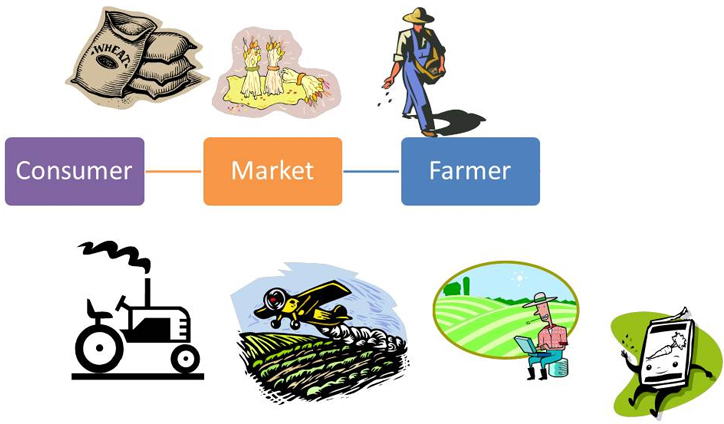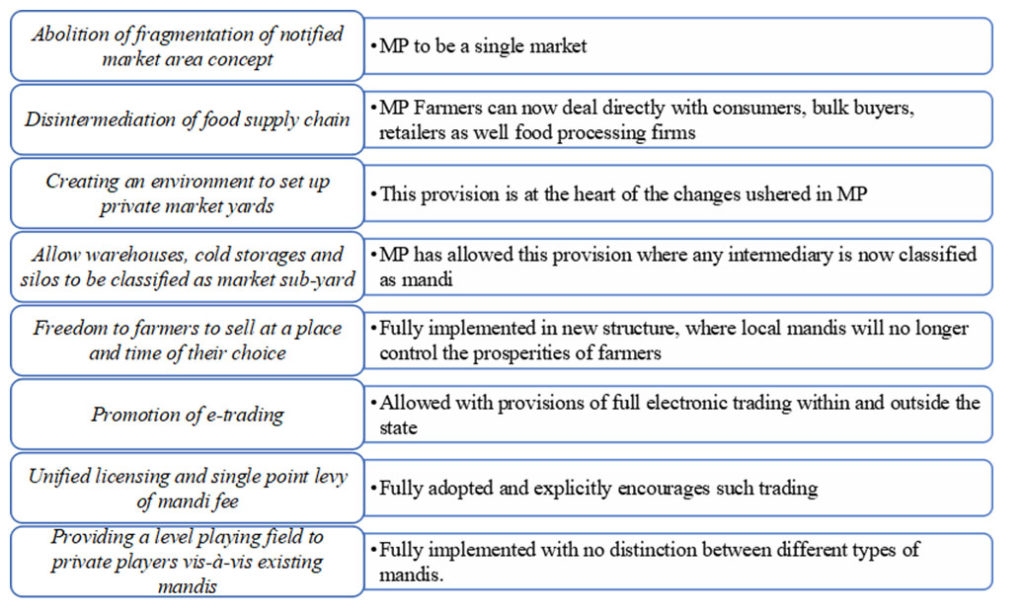Rebooting agricultural supply chains – how the MP model can benefit every state

Covid-19 has caused disruptions across the sectors including agriculture, globally. With the countries in lockdown mode, the supply chains have been broken or affected adversely. There will be a need for major shift in ways supply chain operations have been managed till January 2020. Here we are discussing a model that is currently being rolled out in the Madhya Pradesh (MP), a central state in India, that can become an important mechanism in future supply chain operations especially at the farm gate level in India.
Recently, MP CM has made trendsetting policy changes to transform the supply chain for the agriculture sector in general and for farmers in particular. Farmers in MP can now sell their crops to any individual or entity willing to buy them, without approaching a mandi. The new model enables farmers to negotiate the best prices for their commodities directly with traders or bulk buyers. The new model also allows creation of private mandis with trading facilities, private yards and cold storage chains. The private mandis will require a single license for operating across the state and no mandatory matching of buyer and seller locations. These mandis will charge a single fee for the transaction and no commissions will be paid for commodities purchased at non-base locations helping MP in becoming unified market for agricultural commodities. There is also a provision to make the prevailing prices in all mandis to be made public to farmers – that will shift the consumer surplus to the producers rather than the major share being taken away in the supply chain.
MP is also aiming to launch electronic retail facility (to be integrated with e-NAM) allowing farmers to trade with any entity outside the state too. MP’s farmers now have the full regulatory flexibility to find the best market across the country for their commodities. The changes that MP is adopting have already been envisaged in Agricultural Produce and Livestock Marketing (Promotion and Facilitation -APLM) Act, 2017 which was promulgated with the expectation that the states will adopt its key tenets. Some of the key changes MP has adopted are shown below:

Two more areas from the Model APLM Act that require more attention are: (a) rationalization of fee and charges borne by different parties in the trading process and (b) simplification of administration and regulation of the mandis at the state level. Though, both these are not hampering the immediate progress in the new trading order, their implementation will encourage the large farmers, FPOs to negotiate better prices and small and marginal farmers to reconsider their operating models to find ways to achieve scale and/or quality or both.
Though, all the proposed changes are in nascent stages however, they are critical steps in right direction and if implemented successfully will not only help the farmers benefit economically but also become a step towards bringing down curtains on the monopoly era of Agricultural Produce Market Committees (APMCs). This model, once fully integrated across all the states of India, will be a required shift in agricultural supply chain that will form the base of evolving models in the country for responding to COVID-19 situation and beyond.
Author:

Associate Vice President – Life Sciences Advisory Group
Connect with Authors at: agribusiness@sathguru.com
 Grow Beyond
Grow Beyond 

